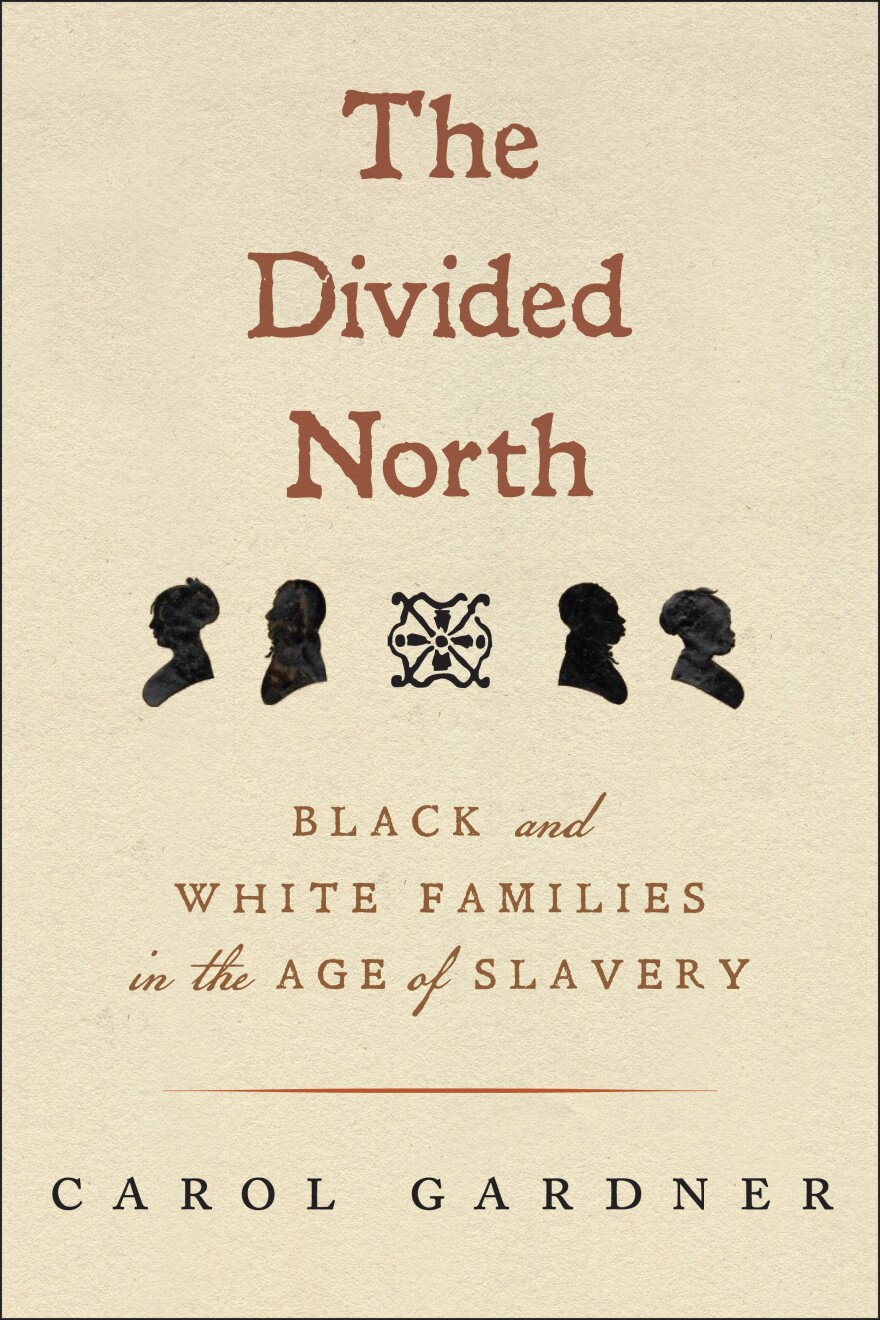In the leadup to the Civil War, Maine was as divided as any other region of the country over slavery and emancipation. That's the core argument of a new book, "The Divided North", by Maine author Carol Gardner.
Gardner tells this story through the lens of two families from Portland, which in the 1800s was a passthrough for many fugitives from slavery. The Rubys were African American abolitionists, and the Gordons were a white family of ship captains and slave traders.
Gardner spoke with All Things Considered host Ari Snider.
This interview has been edited for clarity.
Gardner: Now, despite the fact that they were close neighbors over two or three generations, the Rubys and the Gordons ended up on opposite sides of the slavery/emancipation issue. We believe that Ruben Ruby was active in Portland's Underground Railroad. Ruby was also an outspoken advocate for immediate emancipation of all enslaved people. He was threatened, both in the newspapers and with an incendiary sign posted on the door of the post office. So after the fugitive slave law was passed later in the century, in 1850, it said that all citizens had to help arrest fugitives from slavery. Well, Ruben Ruby joined Portland's Vigilance Committee, which actually resisted the law. They hid and defended fugitives.
Snider: And then at the same time, which is sort of the central crux of the book, as I understand it, the Gordons were shipmasters and involved in the slave trade. So what is their story?
Many ship captains from Maine and other free states did carry Africans into slavery. So Ruben Ruby's classmate, Nathaniel Gordon II, was arrested for bringing an enslaved man into New York City in 1838. And Nathaniel's son, Nathaniel III, became the most infamous slave captain of the century. We think he made at least three successful slaving trips and was captured during a fourth. He was taken to New York for trial. The first trial ended in a hung jury. The second trial happened because the Lincoln administration came in and decided they wanted to prosecute him a second. And they got a guilty verdict, which was a huge reversal for the United States and for the courts in general. And President Lincoln signed Gordon's death warrant, even though 11,000 citizens from Maine petitioned him to commute Gordon sentenced to life in prison.
What do the experiences of these two families tell us about Maine, the North, and really the country as a whole in the pre-Civil War period?

Lots of people believe that northern states were uniformly anti-slavery, and that's a misconception. Just advocating for civil rights, for example, caused lots of riots. When Frederick Douglass spoke in Portland in 1847, rioters threw stones and debris through the windows of the Friends Meeting House where he was speaking. I think the issues of emancipation and equal rights were very hotly contested even in the far corners of the Republic.
So why write this book now — what lessons can be drawn from these stories to help inform our own understanding of present-day politics and political divides?
Not only citizens, but states resisted what they considered unjust laws. And I think you're seeing some of that as well right now. In 1857, the Supreme Court handed down the Dred Scott decision, declaring that people of African heritage, whether they were free or enslaved or born here or elsewhere, were not U.S. citizens, and so had no rights under the Constitution. Several states in the North, including Maine, resisted this. The Maine Supreme Court met and declared that people of African descent born in Maine were actually citizens, and that the men had the right to vote. I think the other really important point is that this very turbulent time, especially with the passing of the fugitive slave law and the Dred Scott decision, gave birth to the 14th Amendment to the Constitution. The 14th Amendment guarantees citizenship to all those born in the United States. And, as you know, the current administration is challenging that notion of birthright citizenship in the courts as we speak. The 14th Amendment also guarantees equal protection under law and due process.
I think we owe Ruben Ruby's generation a huge debt of gratitude, because not only did they fight for the rights of people of African heritage, but for the rights of all of us to enjoy birthright citizenship, to enjoy equal protection under law, and to benefit from due process. And so I think we show our gratitude by continuing to protect and cherish those rights.


